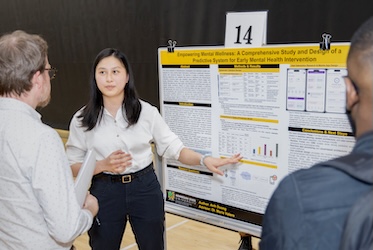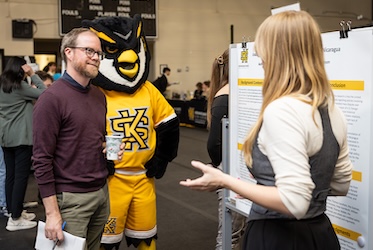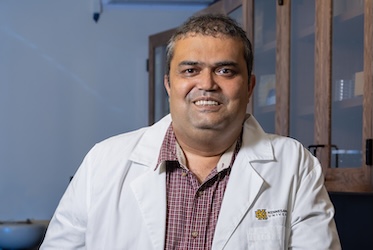
Sociology professor to discuss causes, consequences of medication errors
KENNESAW, Ga. | Aug 19, 2020

Kennesaw State University’s Office of Research is hosting a one-hour web show every other Friday at 4 p.m. to showcase the varied research being conducted by KSU faculty members. “Research with Relevance” spotlights Kennesaw State researchers in a live interview followed by an interactive question-and-answer session with the virtual audience.
In the first episode of the fall semester, Linda Treiber, professor of sociology in the College of Humanities and Social Sciences, will be featured with special guest Jackie Jones, professor emerita of nursing, who recently retired from KSU’s WellStar College of Health and Human Services. Treiber and Jones will discuss the causes and consequences of medication errors among registered nurses.
How did you first get involved in this field of research?
I have long been involved with better understanding problems in the workplace using concepts of labor process control and technology and how these factors could lead to unanticipated negative consequences. I can still remember some medication mistakes being made when I worked as a full-time registered nurse. So, teaming up with Dr. Jackie Jones, who also is a nurse, seemed like the ideal opportunity to begin a research agenda. We examine how social factors influence error outcomes. It’s a great match with nursing, which also looks at the patient in relation to the environment.
Who has influenced you, either as an instructor or as a researcher?
As a social science researcher, I have been influenced by sociologist Dr. Charles Perrow and his concept of “normal accidents.” He talks about how in complex systems with tightly linked connections, mistakes are inevitable. Also, both Jackie and I have been influenced by nurse researcher Dr. Sue Scott and her work on nurses who become the “second victims” of errors.
In what ways has KSU supported your research?
KSU supported us throughout. First, we received a CETL (Center for Excellence in Teaching and Learning) grant to begin the research, then money from our respective colleges and departments for travel and other expenses to continue research. In 2013, Jackie and I won a KSU Foundation Prize for scholarship for our article, “When the 5 Rights Go Wrong: Medication Errors from the Nursing Perspective.” We used some of this prize money to fund our projects and presentations.
How have you seen students benefit from being involved in your research efforts?
That’s hard to say. My students have not helped us conduct the research, but we do use our research in our teaching. Jackie recently taught a Special Topics class on mistakes and medication errors in nursing and I use our work in Medical Sociology and the courses that I teach on organizations and work.
What do you hope students learn from you in the classroom?
I hope they learn how great research is! And that learning research methods is more than just remembering information for an exam. The ability to design and conduct research is a lifelong skill; it’s a marketable part of your “toolkit.”
How much has your field changed in the time you’ve studied it?
I can’t go back that far! But since the 1990s when I earned my master’s degree in nursing, there is now greater emphasis on health disparities, cultural competence, and evidence-based practice. These are sociological issues as well.
Tune in on Friday, August 21 at 4 p.m. to hear Treiber and Jones talk about their research and answer your questions. Click here for more information.
Related Stories

Passions spark innovation at Kennesaw State Symposium of Student Scholars

Kennesaw State students to present research at Symposium of Student Scholars

Chemistry student engaged in sustainable catalyst research through Kennesaw State's First-Year Scholars program

Kennesaw State researchers awarded Department of Energy grant to investigate materials that boost energy-efficient technologies
A leader in innovative teaching and learning, Kennesaw State University offers undergraduate, graduate, and doctoral degrees to its more than 47,000 students. Kennesaw State is a member of the University System of Georgia with 11 academic colleges. The university’s vibrant campus culture, diverse population, strong global ties, and entrepreneurial spirit draw students from throughout the country and the world. Kennesaw State is a Carnegie-designated doctoral research institution (R2), placing it among an elite group of only 8 percent of U.S. colleges and universities with an R1 or R2 status. For more information, visit kennesaw.edu.















